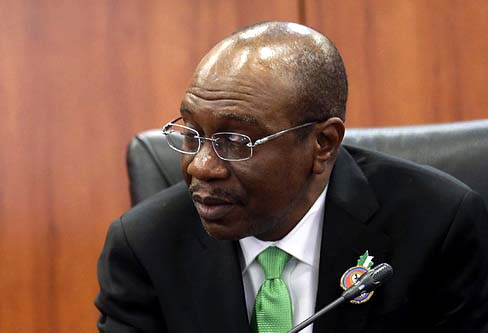The Central Bank governor, Godwin Emefiele, was quoted as saying that interest rates may likely go up. Remember the Bank increased interest rate (MPR) in March, and unfortunately for the Bank, inflation went up from 11.38% to 12.8%. Based on this stubborn inflationary trend, Emefiele argues that interest rate would have to go up. I do not agree with the governor’s economics.
Classical economics states that low interest rates increase the amount of money in circulation, and consequently cause prices to rise – this results in inflation. This simple economics does not work in our case.
Classical economics also assumes that the Philips Curve is always correct. But it is not. For the uninitiated, Philips Curve states that with economic growth comes inflation, which in turn will lead to more jobs and less unemployment. The school of thought that believes that low rates will always aid inflation, might be inadvertently supporting the Philips Curve.
The correct economics should be: low interest rates accompanied with expansionary fiscal policies are inflationary, while low rates accompanied with contractionary fiscal policies are deflationary. Notice here that low interest rates may not necessarily invoke inflation.
Advertisement
Presently, we are having a contractionary fiscal policy because our 2016 budget, when adjusted for inflation and the current dollar exchange rates, is lower than the 2015 budget, in real terms. And the governor is suggesting a contractionary monetary policy by increasing rates. A contractionary fiscal policy and a contractionary monetary policy will cause the economy to shrink.
When interest rates are raised, as envisioned by the Central Bank governor, businesses will find it harder to assess funds. Even if they manage to access funds, the high cost of the funds influences the prices of their goods. This high cost of goods is finally transferred to the consumers. The consumer will have to pay more for goods. This is inflation, in simple terms, and nothing else.
On the contrary, when rates are low, increased money supply helps businesses to maintain output and increase production. Remember March inflation was mainly attributed to the increase in the price of fuel. Ordinarily, increase in the cost of fuel would shrink output –output can only be maintained with increased supply of funds. When output shrinks, businesses lay off workers.
Advertisement
Businesses are already laying off workers. Last week, the Punch newspaper reported that pastors were already complaining because of a drop in the amount of tithe they usually received. If church members are unemployed they won’t be able to keep up with paying their tithes, no matter how faithful they might be.
Besides, a recent CBN report revealed that banks had non-performing loans to the tune of N649.43 billion in 2015 – this was an increase from N42 billion in 2014. This is very high, by any standard. If businesses cannot even service their loans, of what benefit will increasing interest rates be?
To be honest, what we have now looks like a stagflation – high unemployment, high inflation and low productivity. Tinkering with interest rates won’t heal this kind of ailment.
Godwin Emefiele can be justified if he is proposing Reaganomics (named after President Ronald Reagan’s economic policies of the 80s). The four pillars of Reaganomics were: reduction in government spending; reduction in taxes; reduced government regulation and tightening of monetary policy in order to check inflation. This worked for Americans, but it might not work for us. Why? Government is involved in lots of businesses it has no business being in. For example, refining and importing petroleum products. So, where is the reduced government interference and regulation, assuming Reaganomics were to be the case?
Advertisement
I suspect that the Monetary Policy Committee (MPC) and the governor are worried that an increased naira supply might result in more naira chasing the dollar – since ours is an import-dependent economy. The solution to this is more capital controls.
My advice to the governor and MPC is not to raise interest rates. Raising the interest rates might not solve the problem.
Advertisement







